Compiled by Ken Sehested
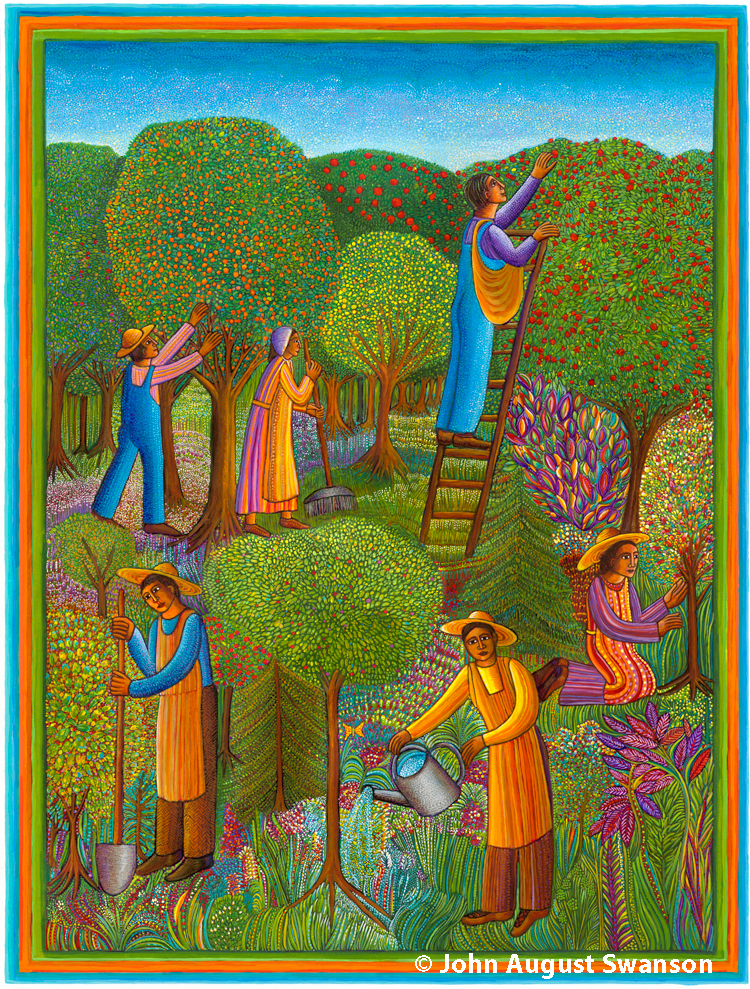 § And the Lord God planted a garden in Eden, in the east; and there he put the man whom he had formed. Out of the ground the Lord God made to grow every tree that is pleasant to the sight and good for food, the tree of life also in the midst of the garden, and the tree of the knowledge of good and evil. ~Genesis 2:8-9
§ And the Lord God planted a garden in Eden, in the east; and there he put the man whom he had formed. Out of the ground the Lord God made to grow every tree that is pleasant to the sight and good for food, the tree of life also in the midst of the garden, and the tree of the knowledge of good and evil. ~Genesis 2:8-9
§ Gardening is cheaper than therapy and you get tomatoes. ~author unknown
§ The earth laughs in flowers. ~Ralph Waldo Emerson
§ Gardening is the slowest of the performing arts. ~author unknown
§ It is forbidden to live in a town with no greenery. ~Jerusalem Talmud, Kiddushin 4:12
§ Leave room in your garden for the fairies to dance. ~author unknown
§ Anyone who thinks that gardening begins in the spring and ends in the fall is missing the best part of the whole year. For gardening begins in January with the dream. ~Josephine Nuese
§ Let us plant dates even though those who plant them will never eat them ~Rubem Alves
§ Gardening is the slowest of the performing arts. ~Mac Griswold
§ I have been fed from fields I did not til. I have crossed bridges I did not build. I have sat in the shade of trees I did not plant. I have received knowledge I did not research.” ~Henlee Barnette
§ [Merely] praying for peace is like praying for a weedless garden. ~John Stoner
§ When my thirst got great enough / to ask, a stream welled up inside; / some jade wave buoyed me forward / and I found myself upright / in the instant, with a garden / inside my own ribs aflourish. / There, the arbor leafs. / The vines push out plump grapes. / You are loved, someone / said, take that / and eat it. ~Mary Karr
§ Those who believe and humble themselves before their Lord, they will be companions of the garden. ~Qur’an, Sutra 11:23
§ But just because the garden grows weeds, that doesn’t mean we shouldn’t plant fresh flowers, instead paving the whole thing over with concrete. ~N.T. Wright
§ A garden is a grand teacher. It teaches patience and careful watchfulness; it teaches industry and thrift; above all it teaches entire trust. ~Gertrude Jekyll
§ A garden requires patient labor and attention. Plants do not grow merely to satisfy ambitions or to fulfill good 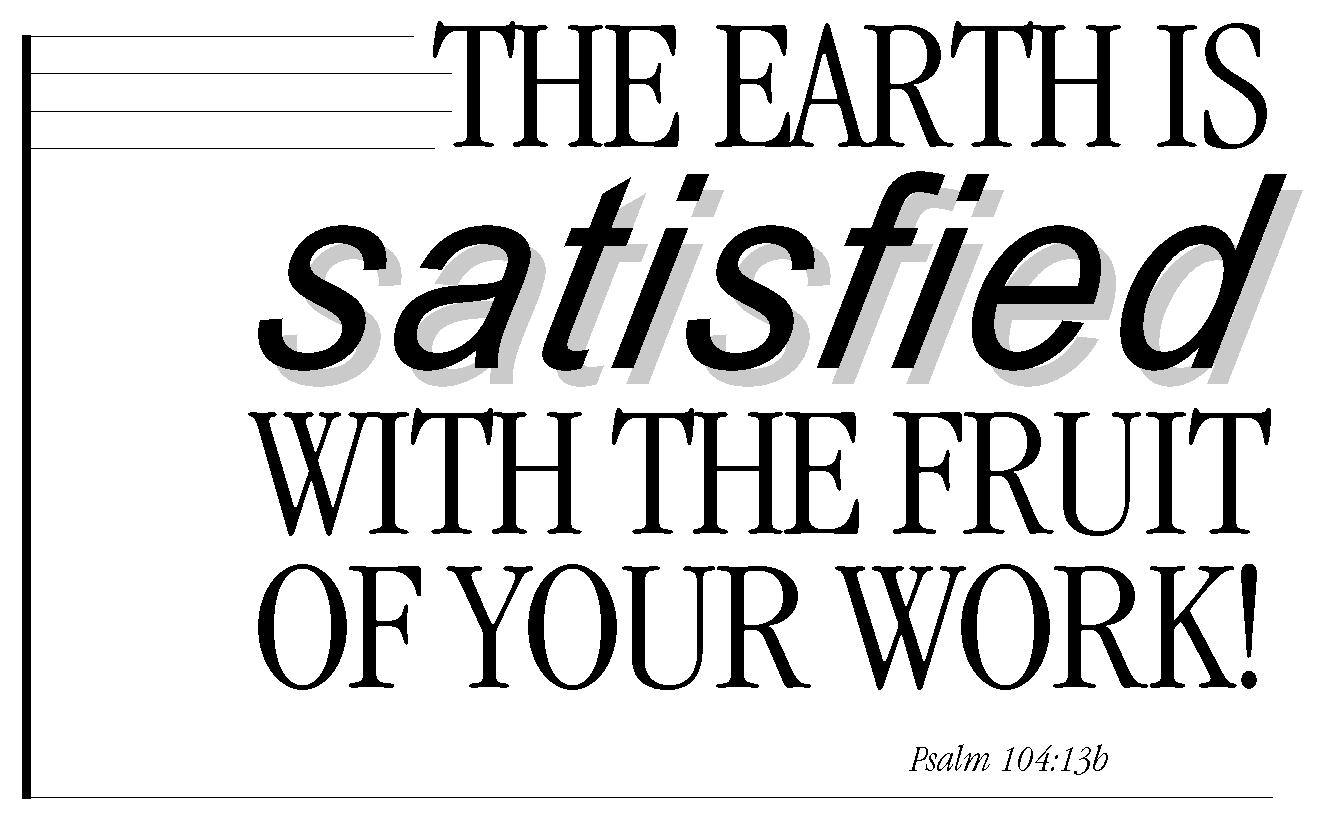 intentions. They thrive because someone expended effort on them. ~Liberty Hyde Bailey
intentions. They thrive because someone expended effort on them. ~Liberty Hyde Bailey
§ Awake, O north wind, and come, O south wind! Blow upon my garden that its fragrance may be wafted abroad. Let my beloved come to his garden, and eat its choicest fruits. ~Song of Solomon 4:16
§ Do you think that you shall enter the Garden of Bliss without such trials as came to those who passed before you? ~Scott Reed
§ Garden as though you will live forever. ~William Kent
§ The wicked thrive before the sun, and their shoots spread over the garden. ~Job 8:16
§ The garden is growth and change and that means loss as well as constant new treasures to make up for a few disasters. ~May Sarton
§ The weeds keep multiplying in our garden, which is our mind ruled by fear. Rip them out and call them by name. ~Sylvia Browne
§ To dwell is to garden. ~Martin Heidegger
§ Gardening requires lots of water—most of it in the form of perspiration. ~Lou Erickson
§ Gardening is a matter of your enthusiasm holding up until your back gets used to it. ~author unknown
§ I come to my garden, my sister, my bride; I gather my myrrh with my spice, I eat my honeycomb with my honey, I drink my wine with my milk. Eat, friends, drink, and be drunk with love. ~Song of Solomon 5:1
§ Plants cry their gratitude for the sun in green joy. ~Astrid Alauda
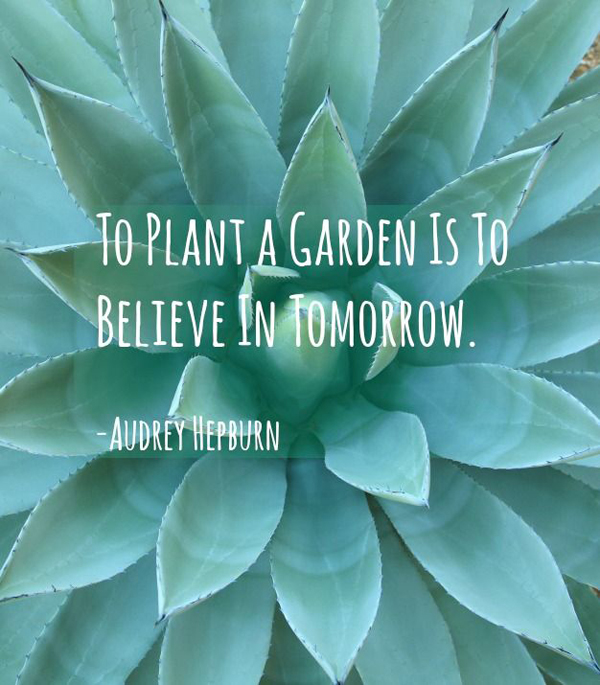 § You can cut all the flowers but you cannot keep spring from coming. i
§ You can cut all the flowers but you cannot keep spring from coming. i
§ For the Lord will comfort Zion; he will comfort all her waste places, and will make her wilderness like Eden, her desert like the garden of the Lord; joy and gladness will be found in her, thanksgiving and the voice of song. ~Isaiah 51:3
§ A society grows great when old men plant trees whose shade they know they shall never sit in. ~Greek proverb
§ I think this is what hooks one to gardening: it is the closest one can come to being present at creation. ~Phyllis Theroux
§ They shall come and sing aloud on the height of Zion, and they shall be radiant over the goodness of the Lord, over the grain, the wine, and the oil, and over the young of the flock and the herd; their life shall become like a watered garden, and they shall never languish again. ~Jeremiah 31:12
§ Earth is here so kind, that just tickle her with a hoe and she laughs with a harvest. ~Douglas William Jerrold
§ Behold, my friends, the spring is come; the earth has gladly received the embraces of the sun, and we shall soon see the results of their love! ~Sitting Bull
§ One of the worst mistakes you can make as a gardener is to think you're in charge. ~Janet Gillespie
§ If you offer food to the hungry and satisfy the needs of the afflicted, . . . you shall be like a watered garden, like a spring of water whose waters never fail. ~Isaiah 58:10-11
§ When the soil disappears, the soul disappears. ~Terri Guillemets
§ Essential advice for the gardener: grow peas of mind, lettuce be thankful, squash selfishness, turnip to help thy neighbor, and always make thyme for loved ones. ~author unknown
§ Green fingers are the extension of a verdant heart. ~Russell Page
§ They shall again live beneath my shadow, they shall flourish as a garden; they shall blossom like the vine, their 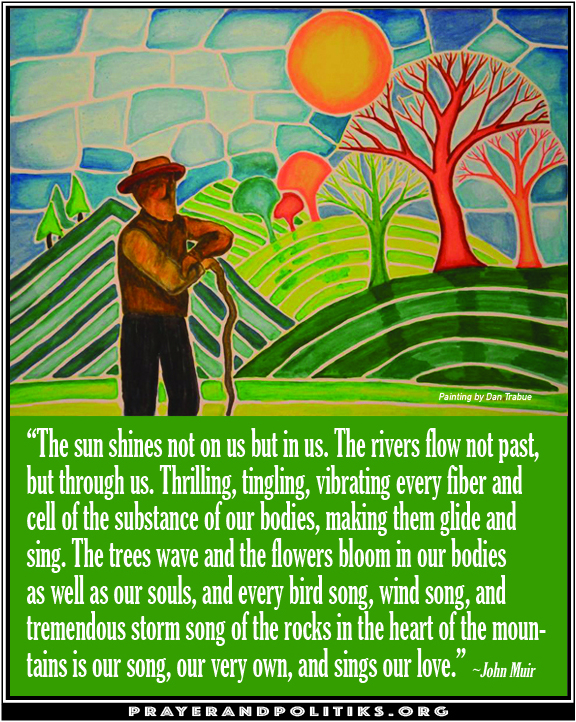 fragrance shall be like the wine of Lebanon. ~Hosea 14:7
fragrance shall be like the wine of Lebanon. ~Hosea 14:7
§ There can be no other occupation like gardening in which, if you were to creep up behind someone at their work, you would find them smiling. ~Mirabel Osler
§ [My father] talked and contrived endlessly to the effect that I should understand the land, not as a commodity, an inert fact to be taken for granted, but as an ultimate value, enduring and alive, useful and beautiful and mysterious and formidable and comforting, beneficent and terribly demanding, worthy of the best of a man's attention and care. ~Wendell Berry
§ I cultivate my garden, and my garden cultivates me. ~Robert Brault
§ If you defile the land, it will vomit you out. ~Leviticus 18:28
§ The best place to seek God is in a garden. You can dig for him there. ~George Bernard Shaw
[§ The kingdom of God] is like a mustard seed that someone took and sowed in the garden; it grew and became a tree, and the birds of the air made nests in its branches. ~Luke 13:19
§ Whether we and our politicians know it or not, Nature is party to all our deals and decisions, and she has more votes, a longer memory, and a sterner sense of justice than we do. ~Wendell Berry
§ In the garden I tend to drop my thoughts here and there. To the flowers I whisper the secrets I keep and the hopes I breathe. I know they are there to eavesdrop for the angels. ~Dodinsky
§ Everything that slows us down and forces patience, everything that sets us back into the slow circles of nature, is a help. Gardening is an instrument of grace. ~May Sarton
§ One of the most important resources that a garden makes available for use, is the gardener's own body. A garden gives the body the dignity of working in its own support. It is a way of rejoining the human race. ~Wendell Berry
§ Weather means more when you have a garden. There's nothing like listening to a shower and thinking how it is 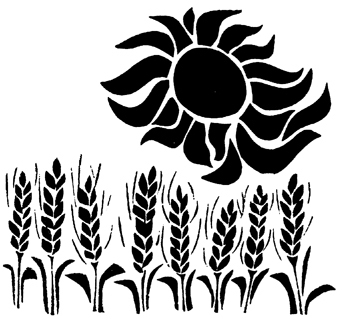 soaking in around your green beans. ~Marcelene Cox
soaking in around your green beans. ~Marcelene Cox
§ God made rainy days so gardeners could get the housework done. ~author unknown
§ God’s liberation from Egyptian slavery comes in the form of a promised new garden. “For the Lord your God is bringing you into a good land,” says the book of Deuteronomy, “a land with flowing stream . . . a land of wheat and barley, of vines and fig trees . . . a land of olive trees and honey, a land where you may eat bread without scarcity, where you will lack nothing. . . . You shall eat your fill and bless the Lord your God. . . . “ (8:7-10). The biblical vision of salvation is rooted in fertile land, bountiful harvest, enduring security. The welfare of the soul and the soil—human and humus alike, adam and adama together—are everywhere intertwined. ~Ken Sehested
§ To love is the great amulet that makes this world a garden ~Robert Louis Stevenson
§ Then the angel showed me the river of the water of life, bright as crystal, flowing from the throne of God and of the Lamb through the middle of the street of the city. On either side of the river is the tree of life with its twelves kinds of fruit, producing its fruit each month; and the leaves of the tree are for the healing of the nations. Nothing accursed will be found there any more. ~Revelation 22:1-3a
©Ken Sehested @ prayerandpolitiks.org


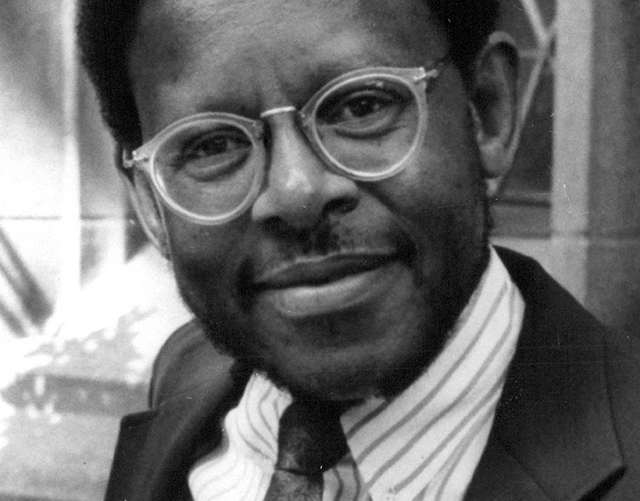 4,400 black people, in 800 counties, between 1877 and 1950.
4,400 black people, in 800 counties, between 1877 and 1950.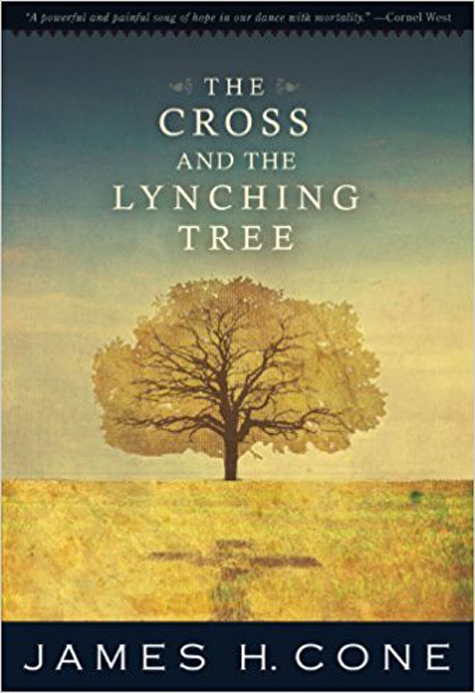 divide in ruthless carnage between those for and against human rights, but over competing commercial priorities of industrial manufacturing and industrial agriculture.
divide in ruthless carnage between those for and against human rights, but over competing commercial priorities of industrial manufacturing and industrial agriculture. § And the Lord God planted a garden in Eden, in the east; and there he put the man whom he had formed. Out of the ground the Lord God made to grow every tree that is pleasant to the sight and good for food, the tree of life also in the midst of the garden, and the tree of the knowledge of good and evil. ~Genesis 2:8-9
§ And the Lord God planted a garden in Eden, in the east; and there he put the man whom he had formed. Out of the ground the Lord God made to grow every tree that is pleasant to the sight and good for food, the tree of life also in the midst of the garden, and the tree of the knowledge of good and evil. ~Genesis 2:8-9 intentions. They thrive because someone expended effort on them. ~Liberty Hyde Bailey
intentions. They thrive because someone expended effort on them. ~Liberty Hyde Bailey § You can cut all the flowers but you cannot keep spring from coming. i
§ You can cut all the flowers but you cannot keep spring from coming. i fragrance shall be like the wine of Lebanon. ~Hosea 14:7
fragrance shall be like the wine of Lebanon. ~Hosea 14:7 soaking in around your green beans. ~Marcelene Cox
soaking in around your green beans. ~Marcelene Cox